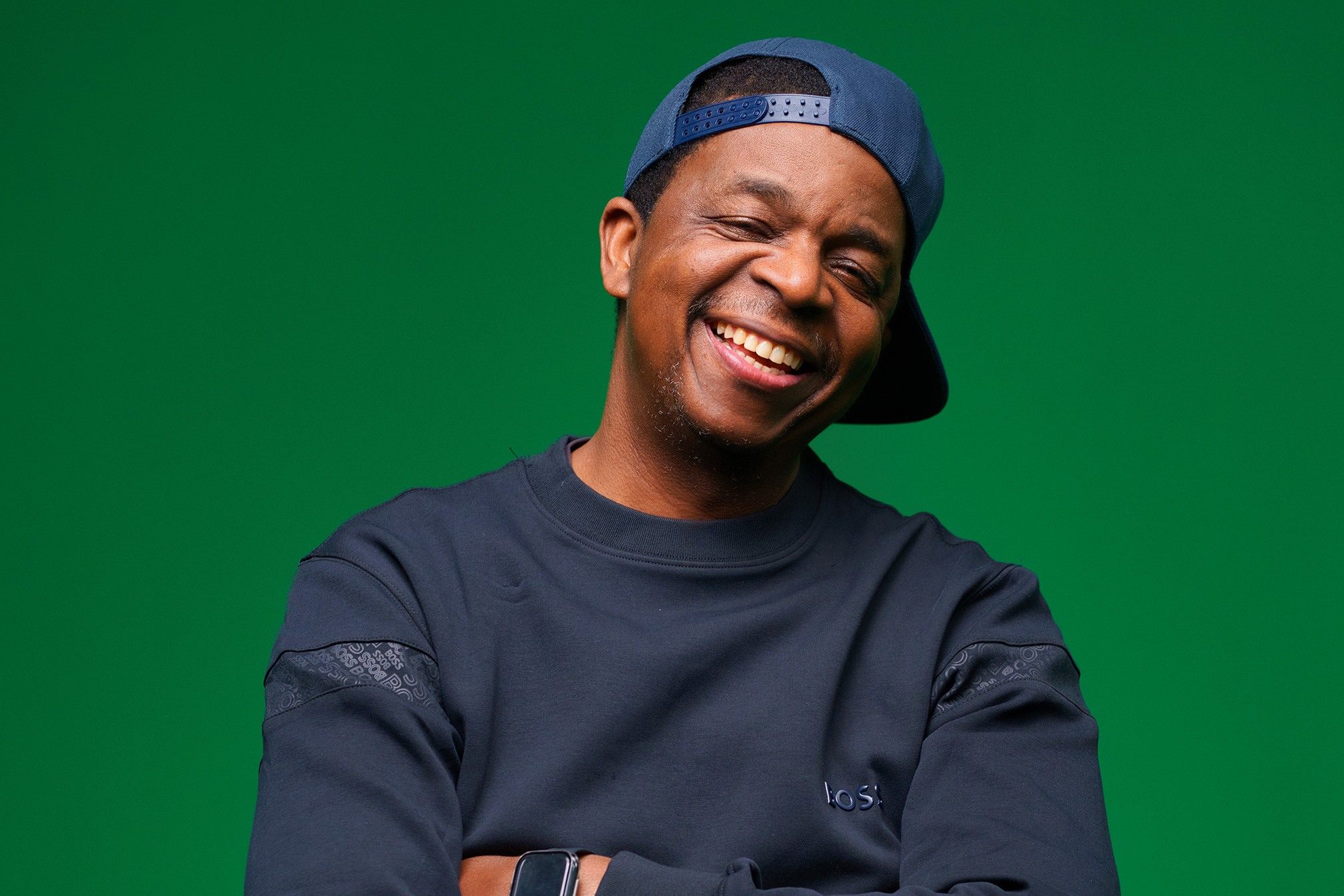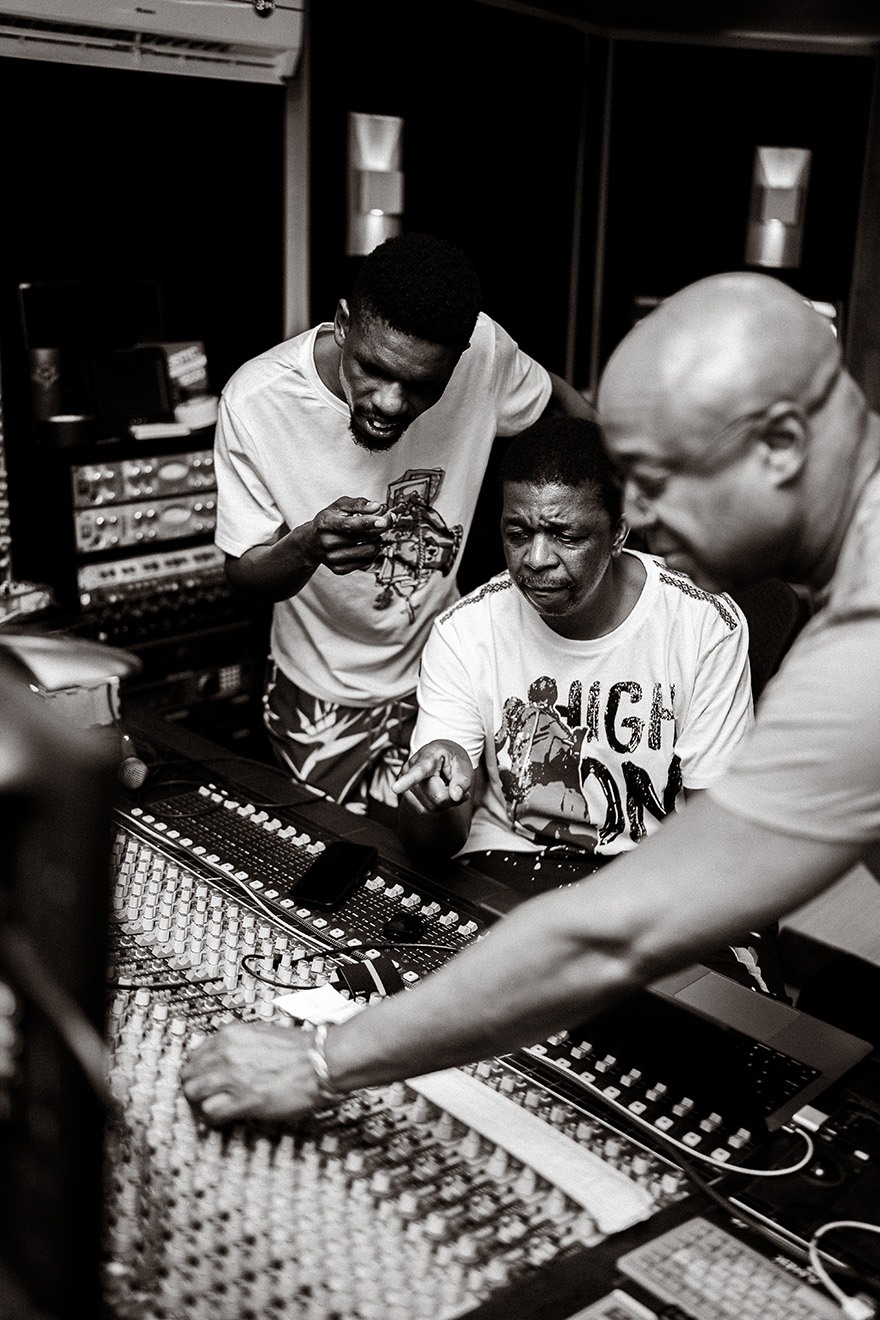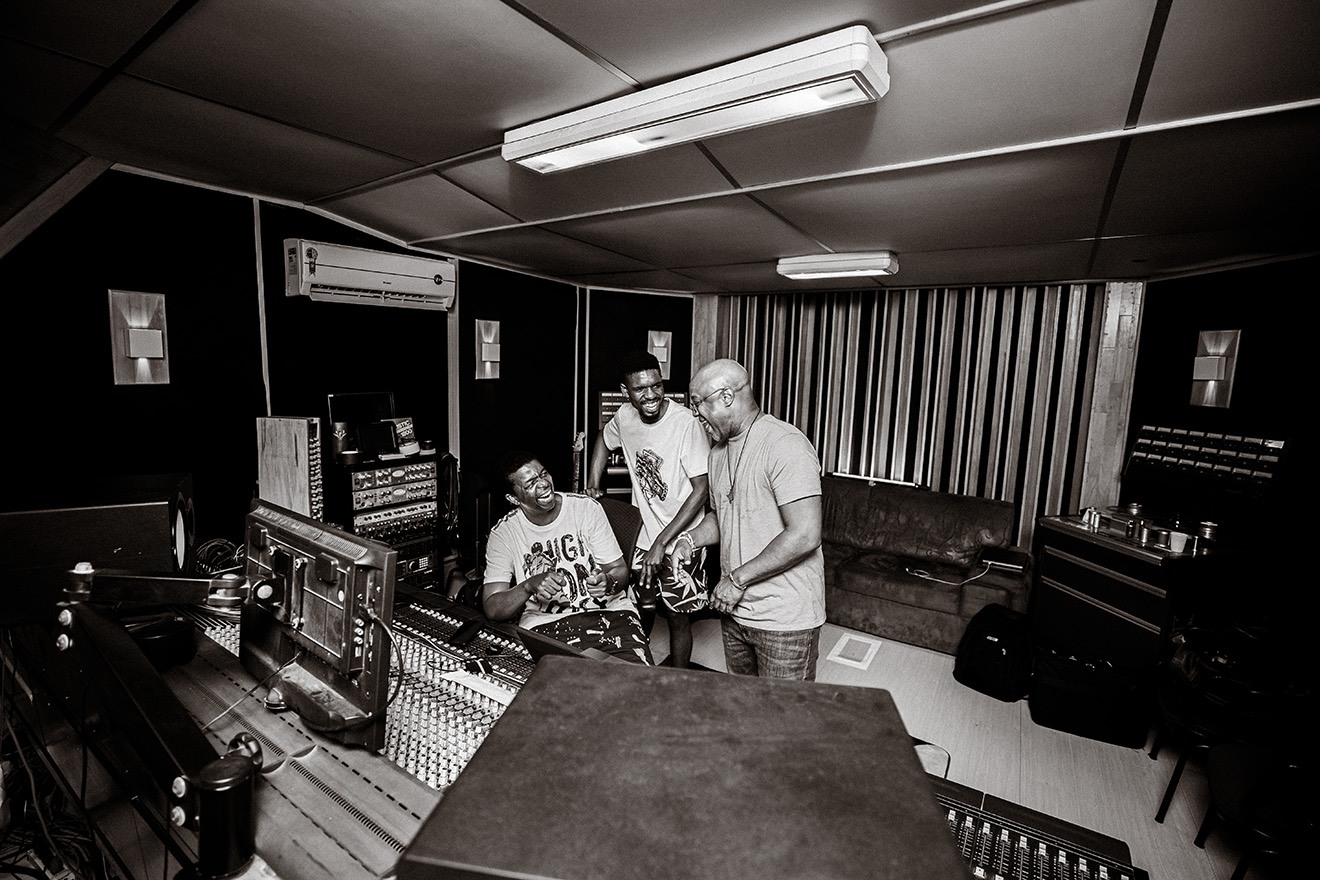 Features
Features
Oskido: "When the major labels came knocking, we'd already done so much of the groundwork ourselves"
We sat down with legendary South African producer Oskido ahead of his new festival experience, Oskido's Big Day Out, to talk the rise of kwaito, selling records to taxi drivers, and a chance encounter with Black Coffee
Oskido has been a pivotal figure in the South African dance and electronic music scene for over 30 years. As a producer, DJ and label boss who is widely credited with taking the sound of kwaito from the townships and bringing it to a wider audience around the world, Oskido has gained the name 'the Godfather of South African dance music' by his unwavering fanbase.
Alongside other early pioneers in the South African scene, Oskido has had a huge influence on the house music sound across the country, now forging new unique styles of Afro house, amapiano, and kwaito. Despite his huge presence in the South African dance music scene, having paid his dues for more than 30 years, Oskido hasn't gained quite the same recognition as the megastars he's mentored over the years. Amongst those he's mentored are artists including DJ Maphorisa, Black Coffee, and DJ Tira, all of whom have gone on to roaring success.
2024 saw Oskido release 'One Drum', a musical celebration of the cultural and historical ties between Africa and its diaspora. This diverse collection features a fusion of genres, including afrobeat, amapiano, axé, reggae, Afro house, and Latin American styles, showcasing the rich tapestry of African and diaspora music. Made with legendary American producer Commissioner Gordon in a Creative Africa NEXUS (CANEX) project (on which Oskido is a board member), and Brazil's iconic rhythm collective Olodum, the EP brings together a stellar cast of collaborators including Nigeria's Flavour, Kenya's Sofiya Nzau, Jamaica's Stephen Marley and the late Jo Mersa Marley, South Africa's Thee Legacy, and the Scorpion Kings – otherwise known as amapiano legends Kabza De Small and DJ Maphorisa – among others.
Read this next: Amapiano's Second Wave: How kwaito opened the door for amapiano's evolutions
Mixmag sat down with Oskido in Johannesburg ahead of his new festival experience, Oskido's Big Day Out, which is described as a "spectacular celebration of South Africa’s vibrant music scene over the past three decades", set to "rekindle the golden era of kwaito by showcasing performances from a stellar line-up of legendary artists and tracking the journey of South African house music from then to now”. Read his Q&A below.

When did your musical career begin?
When I was very young, like everyone at that time, I had to hustle to make a living. I had a stall that used to sell hot dogs and other things. But I loved music, so I would often find myself outside of the city's nightclubs. Then, I would play music for the night club staff who were finishing work. It became a bit of a thing and I loved it. Then one night, the resident DJ at the club didn't show up, so the manager asked if I could play. I was like, 'yes!'. It went so well that they kept asking me to come and play as a resident – and my DJ career was born!
What kind of music were you playing?
Back in the day, we were playing a lot of US house music and records from London and around Europe. Frankie Knuckles, Tony Humphreys, you know. Guys like Louis Vega, of course. Masters At Work, David Morales stuff. It was a niche, vinyl market, but these were the records we played in the shabeens (township bars). We would pitch the records down as the slower tempo was a more natural fit with South African dancers.
So, even with early house records, you were slowing them down to a tempo similar to amapiano or kwaito?
Yeah, we used to slow it down to fit our groove, especially with the stuff that was coming from London, because, you know it was becoming faster. We called the 'style 45'.
How did people hear the music outside of the shabeens?
I used to buy TDK cassettes and record that stuff because taxi drivers were looking for it. The taxi drivers would play it, and there would also be parties happening around the taxi ranks. They couldn't access it in any stores. Next, we started to do cover versions or reworks of the songs to evolve our own sound and have more control. My first tape was called 'Mixmasters', and later I did 'Big Jam', it went from an underground movement to something big.
How did the sound and scene develop?
After the release of Nelson Mandela, the lyrical content began to change. Most music had been political, and rightly so, about the struggle. But now we were free and we wanted to express ourselves in other ways. We started talking about what was happening with the youth of that generation, musically inspired by US and UK house and all that stuff. We started creating our own sound – combined with meaningful lyrics – and that's how kwaito was born.
How did the kwaito movement grow?
The majors didn't see it coming. We went to EMI with some early material and asked if they could sign the record. They said, 'No, this isn't going to sell'. So we went and made our own cassettes. We got a pressing plant and started selling them from the street. We would go to universities, taxi ranks, wherever people wanted the music. We would play and then sell tapes at ANC Youth League rallies. From there, we moved to the stores. The record shop owners would say, 'We don't know if these will sell. Leave five and let's see'. Then by the next week, they would ask how they couold get more tapes. Eventually, the major labels came knocking, but because we had already done so much of the groundwork ourselves, we could negotiate a much better deal that gave us the control we needed.

How did the kwaito movement progress?
It became huge. It was played all over, you know. There were so many groups coming up, and it had a wider economic impact. Finally now, as an artist, you could feed your family. You also can hire dancers, security, bar people and so on. At festivals, these mamas would come and cook, and guys would sell anything and everything. It was a foundation – artists and the wider community became empowered.
Was the sound being internationally recognised at this stage?
In around 1995, we went to the Miami Winter Conference. We were invited by Louis Vega because he had come to play here in South Africa, and he was blown away by the scene here. There was myself and other pioneering South Africa DJs, Christos, DJ Fresh, Vinnie Da Vinci and Greg Maluca. Louis was playing with Roy Ayers, and it was the first time I had seen a DJ playing with a jazz musician. I was like, 'Wow!'. That was such an incredible time in house music. Guys like Kerry Chandler, Masters At Work were all amazing. But what we realised after that, was that if we wanted our music to break internationally, we had to up the tempo. The kwaito BPM was around 110, and we needed to speed that up for the rest of the world.
So how did things evolve after that trip to Miami?
We made an album which was in the 120 BPM range. I saw what Louis and MAW were doing adding live instrumentation to house music, so we did the same using our amazing South African musicians, including the jazz legend Hugh Masekela. I sent it to Louis Vega and within three days, I was sitting at my place and an email popped up from Masters At Work, saying they wanted to sign the record. I screamed, and my family were screaming! It felt like real recognition for South African dance music. Now it was being exported internationally. There were a lot of remixes, it was a big record by any standards and we were so proud.
You also have a strong relationship with Black Coffee, right?
Back then, I would always have kids giving me demos and all that. I had moved into a new house and this one guy came and knocked on my door, with his cousin. I was watching TV and just wanted to chill, but I answered and talked briefly and was like 'OK, I'll take your demo'. I left it in the demo pile and went back to the TV. But later, I put it on, and thank goodness I did. This is how Black Coffee was born. He did his first album with us, and then his second album became huge. We then did the third one, and he came to me and asked if we would allow him to go to Universal for his next record. I said, you know what, we've done our work, it's time for you to fly. I'm so proud of him and what he and the new generation of South African house artists have done for the country. He's like my little brother, we have a special bond.
Now, South Africa has another world-conquering sound, amapiano...
When you listen to a kwaito song and an amapiano song, you can hear lyrically, vibe, and tempo-wise it's very similar. But the younger generation have come and made something new and amazing. It's evolving, too! One of the leading amapiano guys, DJ Maphorisa, was signed to our label Kalawa, and he came up learning the business with us. Now, he's flying doing his thing, along with so many talented new names. It's great to see. I always call amapiano the first born of kwaito, and I'm happy with that!
Oskido plays Johannesburg's Huddle Park on Saturday, November 30. Grab tickets to Oskido's Big Day Out here. Listen to Oskido's latest EP, 'One Drum', here.


